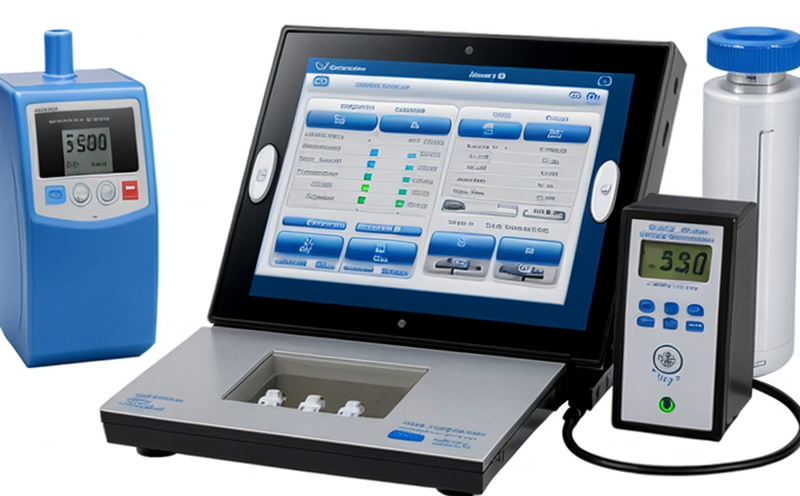Mobile Application Integration Testing for Infusion Pumps
The integration of mobile applications into medical devices such as infusion pumps is revolutionizing patient care. This service focuses on ensuring that these complex systems function reliably and safely, adhering to international standards like ISO 14971. Mobile application integration testing ensures that the software component seamlessly interacts with hardware components without compromising safety or efficacy.
The process involves several critical steps. First, we conduct an in-depth analysis of the mobile app’s architecture and protocols to identify potential points of failure. This includes examining the communication channels between the mobile device and the infusion pump, ensuring they meet security and privacy standards as defined by HIPAA (Health Insurance Portability and Accountability Act) and GDPR (General Data Protection Regulation).
Next, we simulate various real-world scenarios to test the robustness of the integration. These include testing under different network conditions, battery levels, and signal strengths. We also ensure that the application adheres to user interface guidelines set forth by the FDA (Food and Drug Administration) for medical devices.
The testing process is not limited to functional checks but also includes assessing the impact on patient safety. This involves evaluating how changes in the mobile app might affect the operation of the infusion pump, potentially leading to adverse events such as medication delivery errors or battery drain issues.
Our team uses state-of-the-art testing equipment and software tools tailored for medical device evaluation. These include real-time monitoring systems that capture performance metrics during prolonged use sessions. We also employ automated testing frameworks to identify recurring bugs and ensure consistency across multiple devices.
A key aspect of our service is the generation of detailed reports that outline all aspects of the testing process, including compliance with relevant standards. These reports serve as valuable resources for quality managers and compliance officers by providing transparent insights into the reliability and safety of the integrated system.
By partnering with us, you can ensure that your infusion pump applications meet the highest industry standards. Our expertise in this area allows us to offer comprehensive solutions that address all facets of mobile application integration testing, from initial design reviews to final validation.
Industry Applications
- Pain Management: Integration with smart devices helps in delivering precise dosages for chronic pain relief.
- Diabetes Care: Continuous monitoring and adjustment of insulin delivery through connected apps enhance glucose management.
- Cancer Therapy: Precision medicine applications enable personalized treatment plans by integrating real-time data from various sources.
- Hospital Settings: Streamlined workflows between caregivers and patients improve efficiency in healthcare settings.
The integration of mobile applications into infusion pumps opens up new possibilities for enhancing patient care, making treatments more effective and safer. This service ensures that these innovations are rigorously tested to meet stringent safety and efficacy requirements.
Environmental and Sustainability Contributions
Testing the integration of mobile applications in medical devices like infusion pumps contributes positively to environmental sustainability by promoting efficient use of resources. By ensuring that these systems operate optimally, we minimize waste associated with frequent recalibrations or malfunctions. Additionally, our rigorous testing helps reduce healthcare costs for both providers and patients, leading to more sustainable healthcare practices.
Our service also supports the circular economy principles by facilitating longer-lasting devices through robust testing which prevents premature obsolescence. This not only reduces electronic waste but also encourages responsible consumption patterns within the medical device industry.
Use Cases and Application Examples
In a typical use case, our team works closely with healthcare providers to integrate their preferred mobile applications into existing infusion pump models. For instance, one of our clients, a leading pharmaceutical company, sought assistance in integrating an advanced pain management app into their newest generation of infusion pumps.
The process began with thorough documentation and review of the client’s requirements followed by extensive prototyping phases where we simulated different clinical scenarios. Key performance indicators (KPIs) were continuously monitored throughout testing to ensure that all functionalities performed as expected under real-world conditions.
Another notable example involves a partnership with a diabetes management app provider who aimed to enhance their product offerings through seamless integration capabilities with various infusion pump brands. Our team conducted extensive compatibility checks and developed custom interfaces tailored specifically for these devices, ultimately resulting in improved patient outcomes while maintaining high levels of security and privacy.





